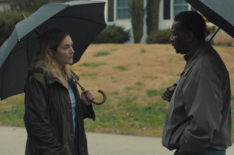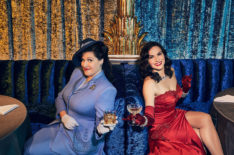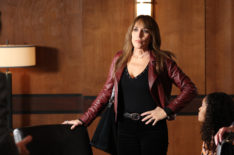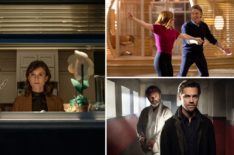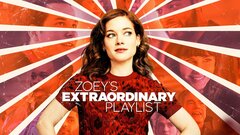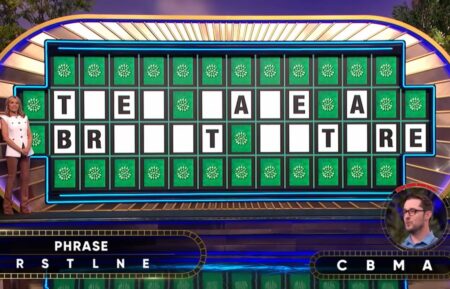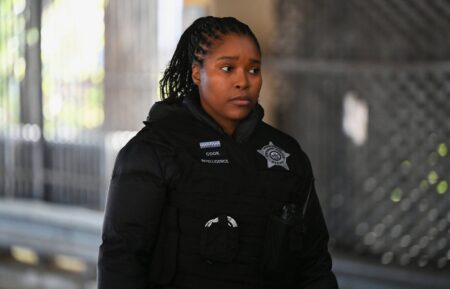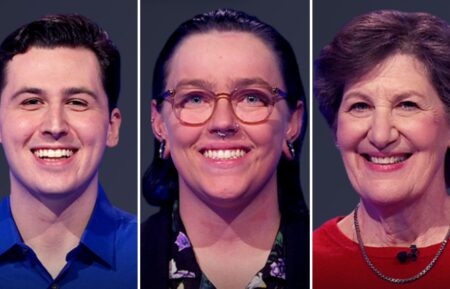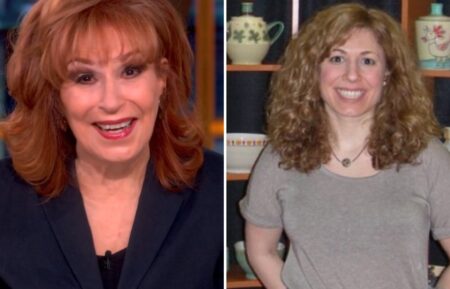Ask Matt: This Is Jean Smart’s Year
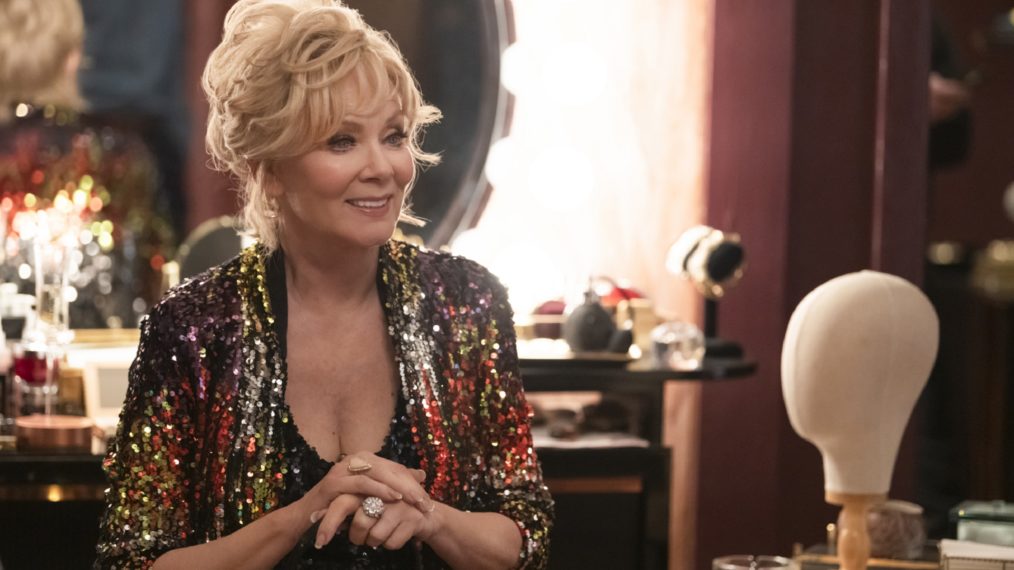
Welcome to the Q&A with TV critic — also known to some TV fans as their “TV therapist” — Matt Roush, who’ll try to address whatever you love, loathe, are confused or frustrated or thrilled by in today’s vast TV landscape. (We know background music is too loud, but there’s always closed-captioning.)
One caution: This is a spoiler-free zone, so we won’t be addressing upcoming storylines here unless it’s already common knowledge. Please send your questions and comments to [email protected] (or use the form at the end of the column) and follow me on Twitter (@TVGMMattRoush). Look for Ask Matt columns on many Tuesdays and Fridays.
The Smart Money’s on Jean Smart This Year
Question: Hacks + Mare = A magnificent Jean Smart. Jean Smart has been incredible of late. Between her role in Mare of Easttown and her brilliance in Hacks, I don’t remember such a resurgence of an actor later in life. A few years back she was a standout in a season in Fargo, and I heard she was great in Watchmen. She seems to be booming. I hesitate to call it a comeback because she never really left, but her work has been stellar. And as much as the streaming platforms have caused issues with some, I believe they have allowed older actresses, actors of color, and LGBTQ actors more quality roles. Have you ever seen an actor make such a resurgence so late in their career? — Andrew
Matt Roush: There are many examples of actors, especially character actors, who found their best roles late in their careers. At the risk of leaving out obvious examples, I’d like to just focus on the amazing renaissance (not comeback) of Jean Smart. Loved her in Designing Women, of course, but I think I first became aware of her incredible range when she played the unstable first lady in 24’s fifth season. And then came Fargo, Legion, Watchmen, and now this double-barreled triumph of Hacks (a lead role) and Mare of Easttown (a scene-stealing supporting role). She could easily be a front-runner in the respective comedy and drama Emmy categories. I agree with your point that the explosion of platforms and programming has created new opportunities for a diverse array of performers, including those of a certain age. For that, we should all be grateful. But wow, what a year for Jean Smart.
Should More Shows Shrink Their Seasons?
Question: Do you think that with all of the delays and hiatuses that broadcast networks experienced this year due to the pandemic, they would be willing to reconsider their “longer” seasons, in favor of the model that most streaming services use? For those of us who watch a lot of TV, I have to admit that a 22-episode season is rather daunting when stacked against an 8- or 10-episode series on Netflix or Hulu. I know there are business and economic reasons for having longer seasons, but it seems like such a throwback to the days of the Big Three networks. Even today, the networks are having some success with shorter seasons during the summer. And again, if people are flocking to premium and streaming services to watch shows like Mare of Easttown or The Queen’s Gambit, then shorter seasons of shows like The Conners or Law & Order: SVU may still generate revenue, instead of relying on the syndication route. — Tony M
Matt Roush: There’s a bit of “comparing apples to oranges” in this thoughtful question. In many (though not all) cases in the streaming world, especially on Netflix, we’re talking about watching a show in a binge, and 8 to 10 episodes has proven to be a mostly manageable number. (Although the long wait between seasons after a quick binge gets some viewers riled.) There are broadcast network series that would benefit from shorter seasons, especially those with heavily serialized arcs that can feel padded to fill out a full season. And there is a movement toward shorter runs of some shows, in part to emphasize quality over quantity because the grind can be intense. But when it comes to sitcoms like The Conners and procedurals like SVU, these are meant to be enjoyed as they always have: on a weekly basis, as something to look forward to and depend on, so shrinking that output significantly probably isn’t in the cards.
What I’d like to see happen is for the broadcast networks to get back in the limited-series (formerly miniseries) business, and aim for occasional “event” experiences the way they famously ruled the format in the 1970s and 1980s. This is a great way to tell a long-form story in a shorter format than a weekly series, and with the right subject matter, they might even be able to lure viewers away from the streamers for a minute.
A Killer Season in the Wrong Way
Question: Loved, loved, loved the first season of Why Women Kill on CBS All Access (now Paramount+). It was typical Marc Cherry campiness and loved the craziness of it all. Like a lot of shows before it, they messed with the recipe in Season 2, got too ambitious and we have a lackluster second year. Why ditch the three-storyline arc? Why are we left with just two main characters/story arcs? One lead finds out her husband has a big secret and just goes with it, and the other is yet another Eva Longoria-inspired character which every Marc Cherry show has done since. The 1940s setting is pointless if everything is going to be 2021 PC. I would be shocked if this show gets a third season. They alienated their Season 1 fans by changing everything around. Why why why!!! — Lisa Sharon C
Matt Roush: My guess is that Marc Cherry didn’t want to repeat himself, but by narrowing the format to a single story in the post-war 1940s with less of a who’s-gonna-die hook, the new season of Why Women Kill needed to raise its game and tell a crackerjack tale. That didn’t happen (see my review), which is more a matter of execution than being too ambitious or not enough. I’ll watch Allison Tolman in anything, but the campiness falls flat this time. While you might empathize with her character feeling trapped by her drab domestic prison — even without her husband’s big dark secret — it’s hard to care what happens to any of them, especially if the stakes are as puny as her being accepted by a high-society garden club of women whom she knows are awful. It’s a misfire for sure, but the concept is a strong one, and it’s hard to know where the bar is set for a new streamer like Paramount+ when it comes to renewing its original shows.
Is ABC’s Rebel Cancellation Another Turning Point?
Question: I’m sure I’m not the only one writing to you spurred by sharp disappointment at the news that Rebel was not renewed. The entire cast was a delight and my favorite part was the messy blend of family. With various exes, children, half-siblings, and chosen family, it was nice to see my weird dysfunctional but ultimately loving melting pot of a family reflected on screen. Do you have some insight as to why? The pedigree in front of and behind the scenes would have pointed to an automatic renewal so I am very shocked. The announcement that it wouldn’t be renewed was after the third episode aired so it was never really given a chance to gain an audience. Is this show just another victim of the migration of viewers away from network TV? Do you think this type of quick cancellation influences creators and stars to rethink if they want to be involved in network TV? So many creators have moved to or created relationships with streamers that I feel we will start to see less and less big names on network TV. — Tracy
Matt Roush: You’re right that you’re not alone. The reaction to Rebel’s cancellation accounts for roughly half of the reader e-mail I’m getting these days, so I can only hope ABC is getting an earful as well. The industry take on this hasty decision was that because the show didn’t open strong after a big promotional push and giving Rebel the enviable post-Grey’s Anatomy time slot, they cut their losses, seeing little potential for growth. This feels very short-sighted, but that’s how it often goes in this tough business.
To Tracy’s questions, I don’t see Rebel as a special case when it comes to viewers fleeing network TV for streaming as much as a victim of counterprogramming, because NBC launched its higher-profile Law & Order: Organized Crime spinoff with Christopher Meloni’s heavily publicized return around the same time. That had to hurt. And while it’s true creators and actors are all chasing lucrative streaming deals, I don’t see this as a watershed moment, either, although the speed of the cancellation was shocking to many, especially since it was produced by one of ABC’s top performers. Chalk it up as another lost opportunity.
Not a Mare Fan
Question: Help me, Matt! What am I missing with Mare of Easttown? My friends are telling me it’s the greatest show in years, you have it ranked in your best of 2021 so far and critics are raving, but I struggle to understand how it’s anything but a solid if underwhelming mystery. I even have gone back and rewatched a few episodes again and I am even more stuck to my initial thoughts of the show. I mean it’s a bit of a slow-burn, the killing off of a main character midway was not shocking — it was just plain pointless and even a bit mean, and the end reveal was as predictable as an old Murder, She Wrote episode. It’s also a slow, slow burn — some episodes were unnecessary — and some arcs are repetitive, echoing Defending Jacob, Big Sky, The Undoing). And what a waste of some good supporting actors (poor Evan Peters, Jean Smart, Guy Pearce). I love Kate Winslet and she’s good, but that’s all she is: good. She will win EVERY award for this over the next 12 months because OMG Kate Winslet did HBO! There was a lot of unfair criticism thrown at The Undoing last fall, but for some reason the equally meek Mare of Easttown gets a pass. I don’t get it. — Ricky
Matt Roush: To each their own. No TV show is universally adored, but my enthusiasm for Mare of Easttown was genuine, in part because it felt more like the adult British mysteries I adore (like Broadchurch, whose first season had a similar impact on me) than a traditional American whodunit, in setting, authenticity, and tone. It’s not the noisiest show, and slow burns aren’t to everyone’s taste, but it held me emotionally the more I got to know Mare’s messy family past and present, and how her investigation stirred up all kinds of conflict among these people she knows so well.
I don’t think you’re being fair to Kate Winslet, who disappeared into this role, or to Jean Smart and Evan Peters, but again, that’s your prerogative (I’ll give you Guy Pearce, who felt out of place, in part because his character didn’t amount to much, which may have been the point). The big midpoint tragedy, combined with one of the bigger reveals, did leave me shocked, in part because of the fallout I feared was coming. And while the murder’s final solution was one of several scenarios I’d considered (though trying to get ahead of the plot is something I rarely try to do), the emotional impact was everything I could have imagined. For all the attention paid to Kate Winslet, I feel Julianne Nicholson deserves equal acclaim for that last act. On the whole, I found Mare of Easttown to be gripping and original and extremely well written and acted. Pretty much what I’m looking for in any TV series.
More Thoughts About Dearly Departed Shows
Comment: An unsolicited comment about Rebel: I’d heard that Abigail Spencer had a strong moment early on (which turned out to be in episode 2). Trouble was, it felt very familiar. And then I realized, so did the rest of the show: very on-brand for ShondaLand, but also very derivative. Decided it wasn’t necessary. I gather ABC came to the same conclusion. — Jon D
Matt Roush: This is why I don’t include last names or addresses to protect my correspondents’ anonymity. These are fighting words, considering the amount of unhappy fan mail I’m getting about this show. But also a reminder that, as in the discussion of Mare of Easttown, there’s no show that rings everyone’s bell.
Question: I’m writing just after I found out about the cancellation of Zoey’s Extraordinary Playlist. On one hand, I’m heartbroken. How am I going to live without this wonderful show in my life — and especially without Mo, one of my favorite TV characters of all time? On the other hand, the show wrapped up several story arcs so well in the season finale that maybe it’s better that it turns off the lights now, at its peak, than to go on for one or more seasons and fizzle. What are your thoughts? — FTC
Matt Roush: That’s a fair point, although that last twist with Max is something I’d sure love to see more of. And all of Zoey was such a delight that it’s hard to imagine fans not wanting more. But I had a similar reaction to the finale of Fox’s equally prematurely canceled Prodigal Son (such a different sort of show, though also baroque and refreshingly original). Like Zoey, it ended on a shocking beat, but if it had been the end of a movie, I’d have thought it was a cool and provocative way to keep the story fresh in my head forever. There’s something to be said for going out on a high, which Zoey absolutely did (after a rocky first half of the second season), but I prefer it when the network and creative talent are on the same page as to when that final moment is supposed to occur.
That’s all for now. We can’t do this without your participation, so please keep sending questions and comments about TV to [email protected] or shoot me a line on Twitter (@TVGMMattRoush), and you can also submit questions via the handy form below. (Please include a first name with your question.)
From TV Guide Magazine
How 'Countdown' Recruited Jensen Ackles to Go Full 'Die Hard'
Countdown boss Derek Haas talks creating the character around Ackles, and the cast teases the “Avengers”-like team of the crime thriller. Read the story now on TV Insider.



